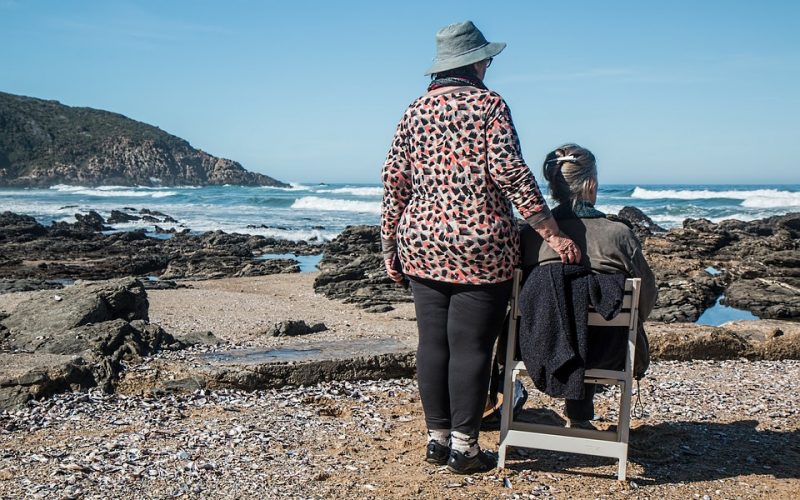Life is filled with moments of joy, growth, and triumph, but it also comes with its share of challenges and unpredictability. Whether it’s the sudden loss of a loved one, a health diagnosis, a job redundancy, or a natural disaster, unexpected life events can be some of the most testing times a person may face. During these difficult periods, one key factor often plays a crucial role in coping and recovery: the support of family and friends.
The emotional foundation of family and friends
One of the most immediate and impactful ways that loved ones help during crises is by providing emotional support. When chaos unfolds unexpectedly, feelings of anxiety, sadness, or even anger can feel overwhelming. Having someone available to simply listen, empathise, or help you process emotions can make an enormous difference. The familiar presence of family members or close friends often brings a sense of stability when life feels anything but stable.
A supportive circle doesn’t always need to have answers or solutions. Many times, just knowing there are people who care, who are willing to stand by you through it all, is enough to offer comfort and reassurance. This emotional foundation not only keeps you grounded, but also serves as a reminder that difficult moments are not faced alone.
Practical help in times of need
Coping with unexpected events, whether big or small, often involves navigating practical challenges. This is another area where support from family and friends proves invaluable. For example, in the case of an illness or injury, loved ones may assist with cooking meals, running errands, or helping with childcare. Likewise, someone unexpectedly facing job loss might find friends and family stepping in with job leads, networking opportunities, or financial advice.
Such acts of practical support not only ease the immediate burdens but also allow individuals the mental space to address the bigger challenges. When someone is freed from the weight of smaller tasks, they can focus on healing, decision-making, or adapting to their new circumstances more effectively.
Strengthening resilience through connection
Human beings are inherently social creatures, and their resilience often lies in their connections. Studies show that having strong social support networks can significantly boost one’s ability to manage stress, adapt to change, and recover emotionally after adverse events. A close-knit group of loved ones offers encouragement, boosts morale, and provides a safe environment for discussing fears and uncertainties.
Sometimes, family and friends can also help by offering different perspectives, helping you see solutions or opportunities that you might have overlooked in the midst of stress or grief. These varied viewpoints can inspire resilience and bring clarity when things feel overwhelming.
The role of unconditional acceptance
During difficult times, people may experience feelings of isolation or self-doubt. They may fear being judged for their vulnerabilities or the decisions they make while coping with unpredictable events. This is where the unconditional acceptance of family and friends becomes critical. Knowing that there are people who accept you entirely, no matter how broken or unprepared you feel, is incredibly empowering.
This acceptance fosters a sense of belonging, which can be particularly vital when an unexpected situation threatens to unravel one’s confidence or sense of identity. It reminds individuals that it’s okay to grieve, stumble, or even ask for help without fearing rejection.
Encouraging personal growth and perspective
While it may not feel like it at first, unexpected life events can serve as opportunities for growth. Support from loved ones often acts as a guiding light, helping you find lessons or silver linings as you process difficult moments. For instance, family and friends might encourage you to learn new skills, seek professional help, or engage in activities that bring healing and positivity.
Being surrounded by a supportive network enables individuals to reflect on their experiences with compassion. This environment often promotes emotional and psychological growth, helping people emerge from hardship stronger and more equipped to handle future challenges.
Nurturing the support system
Support from family and friends during life’s unexpected hurdles is undoubtedly vital, but it’s also a two-way street. Building and maintaining strong relationships is essential for creating a reliable support system. Taking time to nurture these bonds when life is stable ensures they remain intact during periods of unrest. Simple acts of kindness, fostering open communication, and expressing gratitude for the role loved ones play in your life are key contributing factors.
Recognising the importance of your network and reciprocating support not only strengthens your relationships but also guarantees that you have people to lean on when life throws surprises your way.
Life’s unexpected events are rarely easy to manage, but having the support of family and friends can significantly soften the blow. From emotional reassurance to practical help, nurturing resilience to fostering growth, the presence of loved ones is deeply impactful. During these moments, it becomes clear just how much human connection matters. By leaning on your support network and cultivating these relationships, you equip yourself to face life’s hurdles with strength, grace, and hope.










